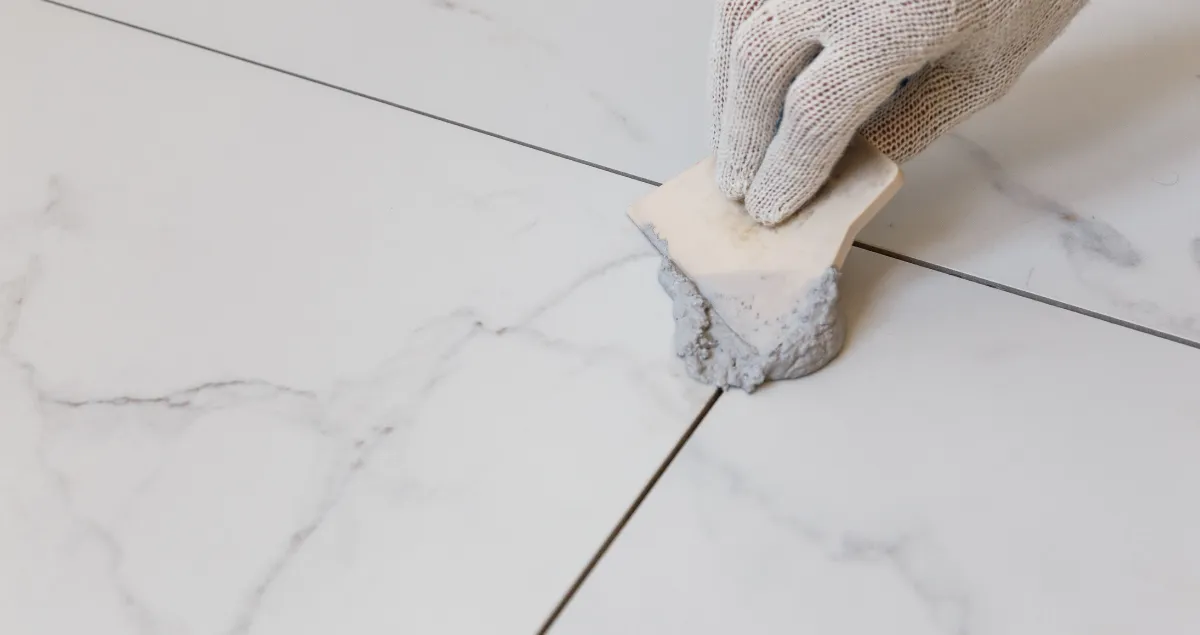
The Importance of Grout Sealing (and How Often You Should Do It)
Introduction: Tile Gets the Glory, But Grout Does the Heavy Lifting
It’s easy to admire a beautifully tiled floor or a shimmering backsplash. But while the tile steals the spotlight, it’s the grout that holds everything together. And like any hard-working element in your home, grout needs protection to perform at its best.
Grout sealing might not be glamorous, but it’s essential. Think of it as the invisible shield that defends your investment from water, stains, mold, and premature wear. Skip this step, and even the finest tile installation can quickly lose its charm—and its integrity.
What Is Grout Sealer and Why Does It Matter?
Grout is porous by nature. That means it absorbs moisture, dirt, and grime unless it's properly sealed. A grout sealer is a protective coating that fills in the pores and creates a barrier against:
Water intrusion
Staining from spills
Mold and mildew
Discoloration from daily use
Without it, your grout can crack, crumble, and trap bacteria—especially in high-moisture areas like showers or around kitchen sinks.
How Often Should You Seal Your Grout?
The answer depends on the room, the grout type, and how much use the area gets.
Kitchen Floors and Backsplashes
Frequency: Every 12–18 months
Why: Spills, oil, and food splatter make kitchens high-risk for staining.
Bathroom Floors
Frequency: Every 12 months
Why: Humidity and daily foot traffic wear down protection faster.
Showers and Wet Areas
Frequency: Every 6–12 months
Why: Constant water exposure demands top-tier sealing to prevent mold.
Signs It’s Time to Reseal
Not sure if your grout is still protected? Try this quick test: Drop a small amount of water onto the grout. If it beads up, you're still good. If it soaks in immediately, it's time to reseal.
Other warning signs:
Grout appears darker or discolored
Persistent mildew smells
Grout feels rough or chalky
Stains aren’t lifting with cleaning
Know Your Grout: Cement-Based vs. Epoxy
Understanding your grout type helps you plan your sealing schedule:
Cement-Based Grout
Most common in residential applications
Highly porous and always needs sealing
Benefits greatly from annual resealing
Epoxy Grout
Naturally water-resistant and stain-repellent
Ideal for commercial or ultra-wet spaces
Usually doesn’t require sealing, but still benefits from routine inspections
At Timeless Creations, we educate every client on what grout type we’ve used and whether it needs regular sealing. We tailor maintenance plans around material performance, room function, and your lifestyle.
How Timeless Creations Handles Grout Sealing
We take grout protection seriously. That’s why every tile project we complete includes professional grout sealing as part of our finishing process.
During Install: We apply a premium penetrating sealer once the grout is fully cured.
Aftercare Guidance: You receive clear instructions on care and resealing timelines based on your materials and space.
Ongoing Support: We offer scheduled resealing services and inspections to keep your investment in peak condition.
Grout sealing isn’t just a checkbox—it’s a commitment to durability, cleanliness, and long-lasting beauty.
Final Word: Protect What Holds It All Together
Tile may turn heads, but it’s grout that shoulders the weight—literally and figuratively. Sealing your grout is the simplest, smartest step you can take to protect your remodel from avoidable damage.
Don’t let something so small become the weakest link in your luxury space.
Ready for peace of mind?
Book a Grout Inspection and Resealing Service with Timeless Creations. We’ll make sure your surfaces aren’t just stunning—they’re safeguarded.
